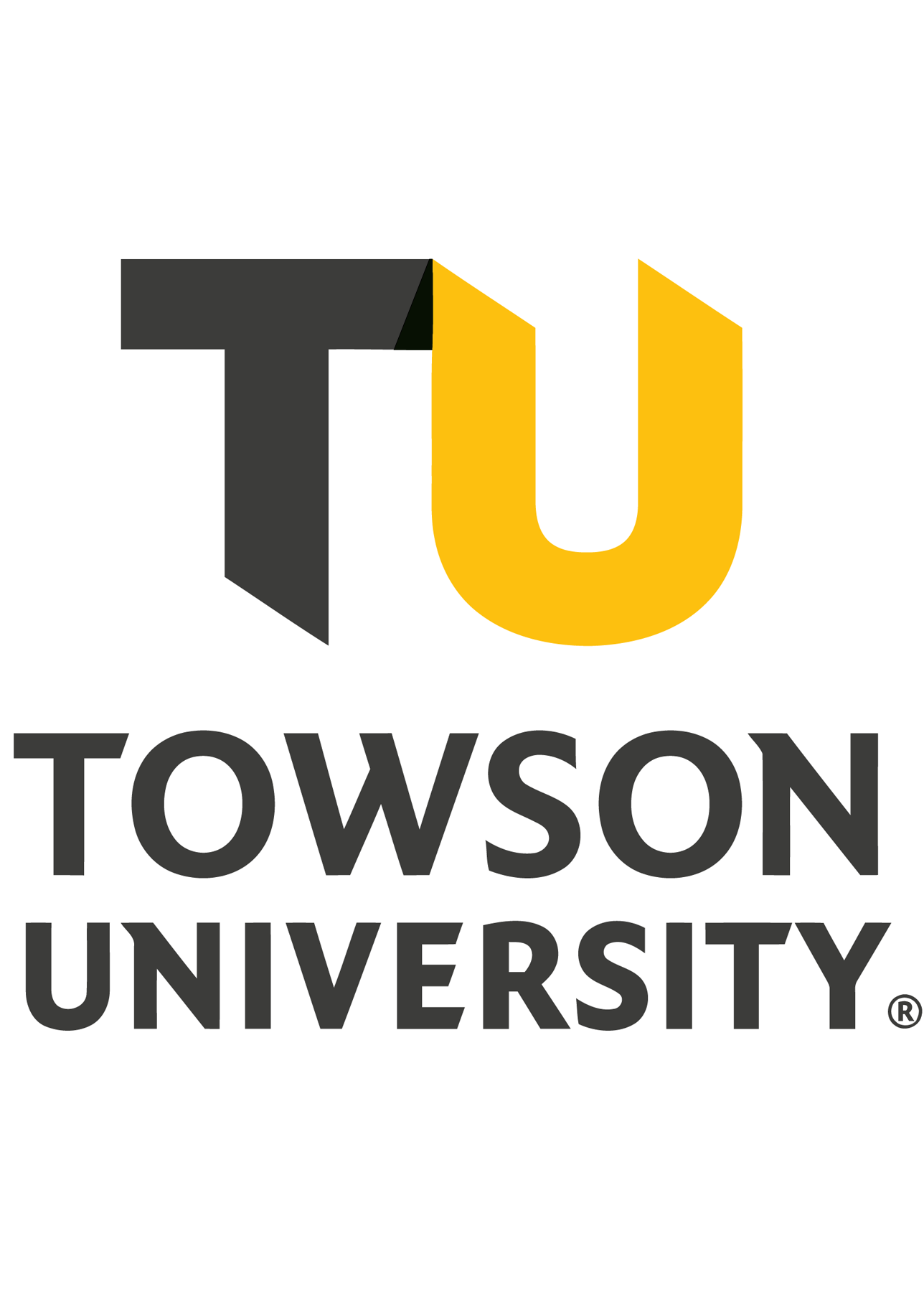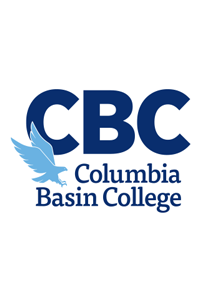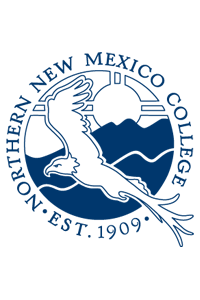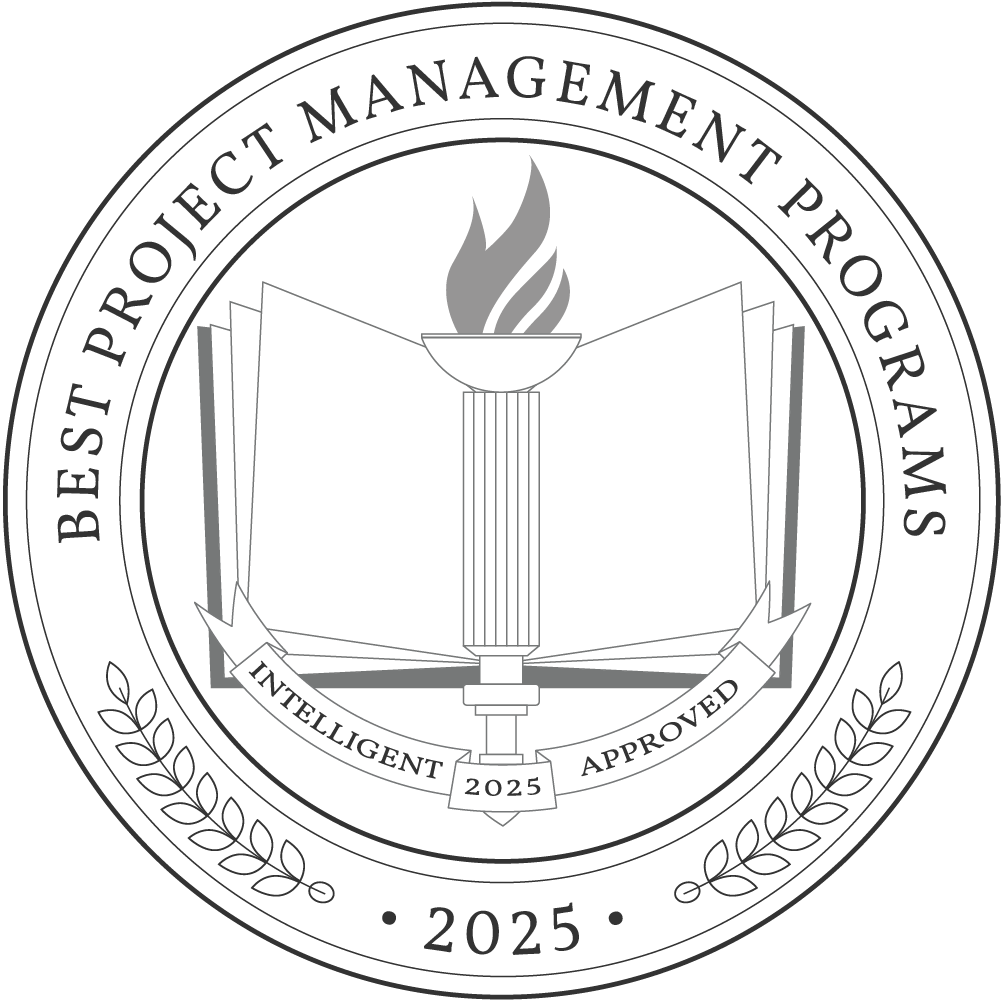Businesses across all industries rely on project managers to oversee projects from planning to closing. A project management degree prepares students for careers in high-demand and versatile management and leadership roles in healthcare, construction, nonprofit, and other sectors. As of 2022, the Bureau of Labor Statistics projects about 68,100 job openings each year over the next decade, and project managers earn a median yearly wage of $95,370.
Schools offer project management programs at the undergraduate and graduate levels. Undergraduate programs require approximately 120 credits over four years of full-time study and average $14,688 yearly for tuition and fees. Master’s programs require between one and two years and have an average yearly tuition of $20,513.
Why Trust Us
The Intelligent.com Higher Education Team is dedicated to providing students with independent, equitable school and program rankings and well-researched resources. Our expert-driven articles cover topics related to online colleges and programs, paying for school, and career outlooks. We use data from the U.S. Department of Education’s College Scorecard, the National Center for Education Statistics, and other reputable educational and professional organizations. Our academic advisory team reviews content and verifies accuracy throughout the year for the most current information. Partnerships do not influence rankings or editorial decisions.
- Analyzed over 2,000 national, accredited, and nonprofit colleges and universities
- 800+ rankings pages are reviewed and updated yearly
- Content is informed by reputable sources, surveys, and interviews with academic advisors and other experts
- Over 100 data points are reviewed for accuracy and quality throughout the year, including sources
How we rank schools
Our list features the best Project Management degree programs at top colleges nationwide. Each school featured is a nonprofit, accredited institution — either public or private — with a high standard of academic quality for post-secondary institutions.
We evaluated each school’s program on tuition costs, admission, retention and graduation rates, faculty, reputation, and the student resources provided for online students. We collected data from trusted sources like the National Center for Education Statistics, individual school and program websites, school admissions counselors, and other data sources. Then, we calculated the Intelligent Score on a scale of 0 to 100 based on the following criterion:
Academic Quality:
- Admission rate versus enrollment rate
- Retention rate of students who return after year one
- Accreditation status (regional and programmatic)
- Nonprofit status, both private and public institutions
Graduation Rate
- Overall graduation rate
- Total number of currently enrolled students, including diversity metrics
- Student-to-faculty ratio
Cost and ROI
- In-state and out-of-state per-credit tuition rates and fees
- Required credits to graduate
- Earning potential after graduation
- Availability of federal student loans, scholarships, and other financial aid options
Student Resources
- Available student services for online-only and hybrid programs
- On-campus amenities like tutoring centers and the number of libraries
Read more about our ranking methodology.
Best 12 Accredited Project Management Programs
FiltersInstitution Type
Status
- Intelligent Score
- Alphabetically By University Name
- Acceptance Rate
- Enrollment
- In-state Graduate Tuition
- Out-of-state Graduate Tuition
- In-state Undergraduate Tuition
- Out-of-state Undergraduate Tuition

Towson University
Intelligent Score: 99.36In-state: $6,962
Out-of-state: $21,098
In-state: $7,902
Out-of-state: $7,902
SAT: 1040-1200
ACT: 20-25
Resident: $307
Non-Resident: $1,016
On-Campus
Middle States Commission on Higher Education
120

Bellevue University
Intelligent Score: 98.88In-state: $7,176
Out-of-state: $7,176
In-state: $10,710
Out-of-state: $10,710
SAT: N/A
ACT: N/A
$339
On-Campus, Online
Project Management Institute (PMI) Global Accreditation Center for Project Management Education Programs (GAC)
127

Columbia Basin College
Intelligent Score: 98.8In-state: $19,486
Out-of-state: $21,265
In-state: NA
Out-of-state: NA
SAT: N/A
ACT: N/A
Resident: $224
Non-Resident: $418
On-Campus
Project Management Institute (PMI) Global Accreditation Center for Project Management Education Programs (GAC)
180-182

Bemidji State University
Intelligent Score: 97.67In-state: $7,976
Out-of-state: $7,976
In-state: $8,012
Out-of-state: $8,012
SAT: N/A
ACT: 19-24
$249 - $374
On-Campus
Higher Learning Commission
120

Embry - Riddle Aeronautical University
Intelligent Score: 95.46In-state: $36,456
Out-of-state: $36,456
In-state: $18,228
Out-of-state: $18,228
SAT: 1140-1320
ACT: 23-29
$1,767
On-Campus, Online
Project Management Institute (PMI) Global Accreditation Center for Project Management Education Programs (GAC)
120

Northern New Mexico College
Intelligent Score: 94.52In-state: $24,294
Out-of-state: $33,559
In-state: NA
Out-of-state: NA
SAT: N/A
ACT: N/A
Resident: $211
Non-Resident: $597
On-Campus
Accreditation Council for Business Schools and Programs
129

Northwest Florida State College
Intelligent Score: 94.51In-state: $16,667
Out-of-state: $20,083
In-state: NA
Out-of-state: NA
SAT: NA
ACT: NA
In-State: $91
Out-of-State: $367
On-Campus
Southern Association of Colleges and Schools Commission on Colleges
120

College of Southern Nevada
Intelligent Score: 94.43In-state: NA
Out-of-state: NA
In-state: NA
Out-of-state: NA
SAT: N/A
ACT: N/A
In-State: $189
Out-of-State: $208
On-Campus
Northwest Commission on Colleges and Universities
120

Davenport University
Intelligent Score: 94.02In-state: $19,320
Out-of-state: $19,320
In-state: $15,696
Out-of-state: $15,696
SAT: N/A
ACT: N/A
$928
On-Campus, Online
Higher Learning Commission
120

University of North Texas
Intelligent Score: 92.33In-state: $8,295
Out-of-state: $18,111
In-state: $6,350
Out-of-state: $6,350
SAT: 1050-1240
ACT: 20-27
Resident: $295
Non-Resident: $715
On-Campus
Association to Advance Collegiate Schools of Business
120

Central Washington University
Intelligent Score: 92.03In-state: $6,475
Out-of-state: $22,551
In-state: $9,822
Out-of-state: $9,822
SAT: 930-1150
ACT: 17-24
Resident: $444
Non-Resident: $1,615
On-Campus, Online
Northwest Commission on Colleges and Universities
120

Saint Louis University
Intelligent Score: 90.42In-state: $46,400
Out-of-state: $46,400
In-state: $21,420
Out-of-state: $21,420
SAT: 1160-1370
ACT: 25-31
$650
On-Campus
Higher Learning Commission
120
How to Choose a Project Management Program
Choose your area of study
Project management degree programs prepare students for essential roles in almost every sector and industry by blending business foundations with leadership and management skills. The best area of study depends on your career and education goals, interests, strengths, and other factors — keep these in mind as you explore degree options.
- Bachelor of Business Administration (BBA): BBA degrees provide students with comprehensive education in business fundamentals. Some BBA programs specifically offer project management degrees, and others provide project management as a minor or specialization. Students develop skills that transfer to project management roles in various industries.
- Bachelor of Science (BS): In addition to business fundamentals, BS programs may offer specialized curricula that concentrate on analysis and technology. Career options include, but aren’t limited to, technical roles such as IT project management, supply chain management, logistics, and healthcare services management.
- Master of Business Administration (MBA): MBAs in project management look at the broad application of business leadership and project management. Exact curricula vary, but MBAs typically teach students generalized and applicable concepts and may offer specialization options. Graduates may pursue more prestigious or senior project management roles.
- Master of Science (MS): MS project management programs offer greater specialization and technological focus than MBAs. Students develop strategic and hands-on skills to problem-solve and implement projects, and they can pursue leadership roles in their specialized fields.
Research schools and programs
Start your research with school and program websites, which typically include tuition estimates, curriculums, course descriptions, program outcomes, and other important details. Admissions counselors and program representatives can also provide additional information and direct you to virtual or in-person campus tours, information sessions, open houses, and other events. Follow schools, departments, or programs on social media to learn more about how they operate.
As you research, look for schools and programs that are regionally accredited. This status confirms that the entire school and its programs meet quality standards, and it also affects financial aid eligibility and credit transferability. Employers may look for accredited education from applicants to ensure consistent hiring standards. Students can verify accreditation status with the Database of Accredited Postsecondary Institutions and Programs.
Prepare for tests and applications
Admission requirements vary by school, but most project management degree programs refer to generalized institutional requirements. These typically include:
- Application form and fees
- High school or in-progress post-secondary transcript
- Letter(s) of recommendation
- Personal essay or statement
- Resume or CV
- SAT or ACT scores for undergrads
- GRE or GMAT scores for graduates
- TOEFL scores (for students educated in a non-English language)
Some undergraduate programs may require a year of general studies and specific core courses before students can declare a project management major. Graduate programs typically require a relevant bachelor’s degree, but some may also accept substitute significant professional experience in a related field. Contact admissions advisors for each program to verify requirements, eligibility, documentation, and deadlines.
Select your program
Once you’ve shortlisted programs, compare them to determine which best fits your needs. Consider the following factors:
- Curriculum
- Cost
- Financial aid
- Course delivery method
- Graduate requirements
- Location
- Specializations offered
The importance of each factor depends on a student’s unique situation. For example, course delivery methods and logistics may be more critical if you have other work, family, or other obligations that pair better with part-time, online, or flexible study options. Some programs may offer internships, conferences, work co-ops, and other opportunities that are especially advantageous for students looking for connections and immediate post-graduation workforce entry.
Determine how you’ll pay for your degree
A combination of financial aid, scholarships, grants, and other resources can help students pay for a degree in project management. Regardless of your financial situation, complete the Free Application for Federal Student Aid (FAFSA) to access need-based federal assistance — most students qualify for some form of aid.
Eligible students who require additional assistance can also look into PLUS federal loans, military student benefits, and state aid. Some institutions, businesses, foundations, and other private organizations may offer financial assistance. Employers sometimes provide tuition assistance benefits programs for their employees attending school.
What Can You Expect From a Project Management Program?
Over four years, undergraduate project management degrees provide a broad scope of business foundations, such as finance, marketing, and sales, combined with leadership and management skills. Students can expect to complete case studies and projects that teach and apply the fundamentals of project management from planning to execution, developing problem-solving, analysis, communication, and other transferable skills. Students may also participate in work co-ops, internships, and experience opportunities.
Graduate project management programs typically require one to two years of full-time study and vary in curriculum, but usually focus on project life cycle and management topics. MBA students study a wider breadth of subjects, and MS programs usually offer concentrations in engineering, supply chain management, and other topics. In addition to core courses, graduate programs may require seminar participation and an approved thesis.
Potential courses you’ll take in a project management program
- Project Management Foundations: Students learn about the general tools and techniques required for effective project management. Topics may include project planning, risk analysis, implementation and closure, and managerial finance.
- Project Teams and Leadership: This course explores human resource planning and performance in project management. Possible topics include communication skills, behavioral theory, organizational culture, and team leadership.
- Project Planning and Scheduling: Students explore budgets, cost estimates, schedule forecasts, and cash flow projections through resource and cost management models. Students can forecast and measure project performance in relation to cost, risk, and scope.
- Project Operations and Logistics: This course provides an in-depth exploration of operations, supply chain management, logistics, and procurement. Students research and analyze operations plans and performance and cover topics such as sustainable operations, transportation analysis, strategic sourcing, and more.
Project Management Degree Frequently Asked Questions
How do I apply to a project management degree program?
Processes vary, but most institutions have an online portal to guide you as you complete and submit an application to a project management degree program. Speak to an admissions counselor to verify any requirements, ask questions, or inquire about how to submit an application by mail or in person, if needed.
Depending on the institution and education level, applications typically require transcripts, a personal statement, a resume or CV, letters of recommendation, and undergraduate or graduate-level test scores. Confirm deadlines with a counselor to ensure you have documents, fees, and other materials organized on time.
How much does a project management degree cost?
On average, an undergraduate degree in project management costs $14,688 in tuition per year, and graduate degrees average $20,513. These figures don’t reflect other costs — room and board, for example, can increase undergraduate fees to $27,673 per year.
Costs for project management degrees also depend on whether you’re attending a private or public institution, in-state vs. out-of-state student status, local cost of living, transportation needs, and books and materials. Estimate your total expenses and compare them to your financial aid amounts to see what you can expect to pay upfront each year.
How long does it take to earn a project management degree?
Undergraduate project management degrees usually require 120 credits to graduate, which takes about four years of full-time study. In some cases, students can opt for accelerated or part-time studies to complete their degree over shorter or longer terms. Graduate programs require about 30 credits over one to two years, but project or thesis requirements and other curriculum factors can affect degree completion timelines.

